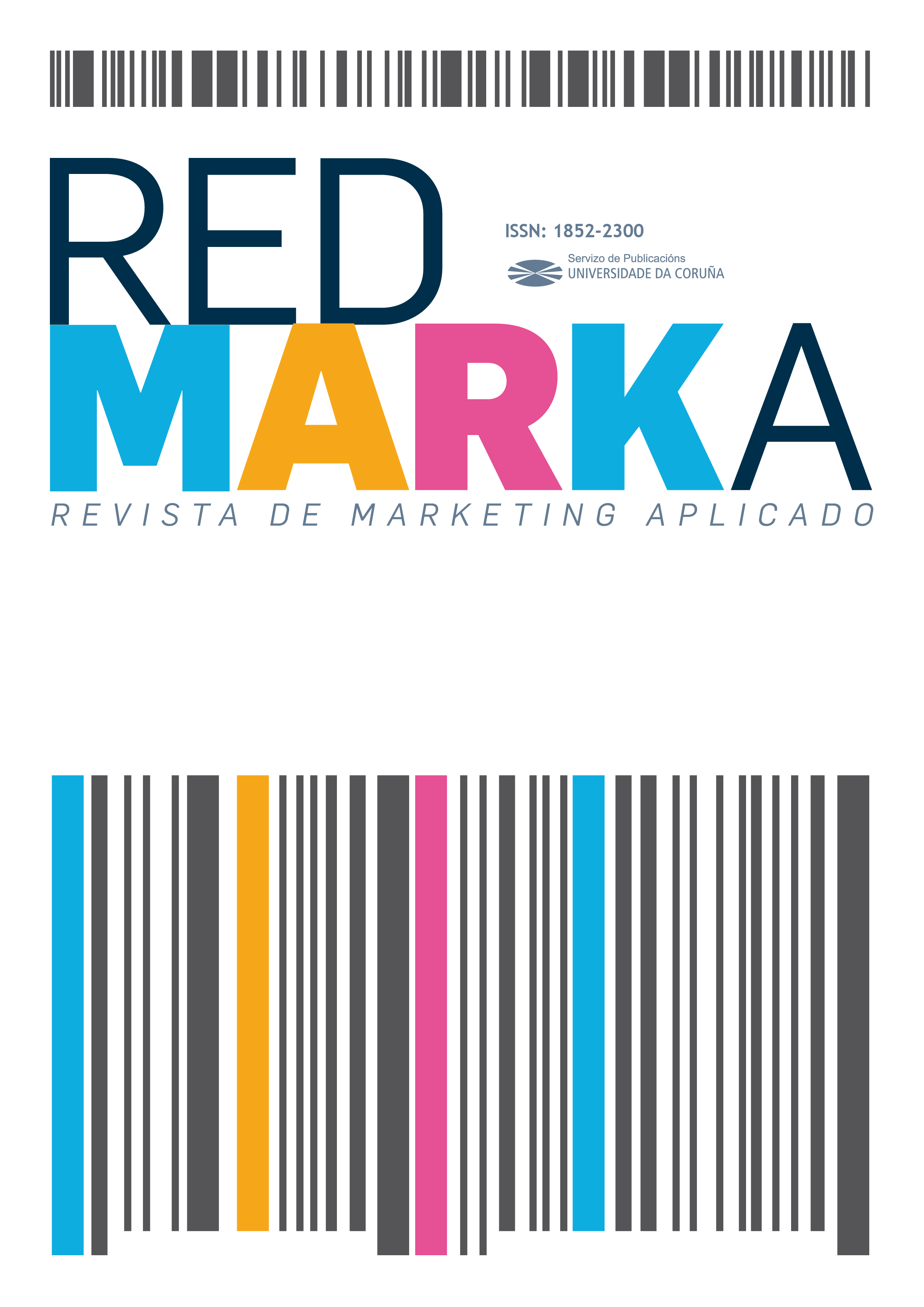Evolution of marketing and university student perspectives about current practices
Main Article Content
Abstract
The aim of this study is to examine the opinion of university students of the Bachelor’s degree in Marketing about current practices within the science of marketing and its sub-areas. The study used a quantitative-descriptive methodology based on a Likert-scale survey. The results revealed that students believe that the main goal of marketing is to satisfy customers, and that green marketing commits companies to making changes in favour of the environment, even though many only pretend to do so. Additionally, students were found to believe that the effectiveness of digital marketing has surpassed that of traditional marketing, although the difference in resources between companies can lead to unfair competition. Finally, the findings indicate that while tourism marketing generates awareness of cultural and natural diversity, it can also contribute to the deterioration and overexploitation of destinations.
Keywords:
Downloads
Article Details
References
American Marketing Association. (2017). Definition of Marketing. https://www.ama.org/the-definition-of-marketing-what-is-marketing/
Arévalo Loor, A. J. (2018). Estudio de mercado y estrategias de marketing digital para Foodie 2.0 (Tesis de grado, Universidad de Guayaquil). http://repositorio.ug.edu.ec/handle/redug/36158
Blázquez Resino, J. J. (2022). Introducción al Marketing: Gestión de Relaciones. En A. Esteban Talaya y J.A. Mondéjar Jiménez (Eds.), Fundamentos del Marketing (2nd ed.) (pp. 13-30). ESIC Editorial.
Callegaro, A., Lozar Manfreda, K., and Vehovar, V. (2015). Web Suvery Methology. Sage Publications.
Castañeda Paucar, J. J. (2019). Evolución de las 4P´s o Marketing Mix [Trabajo de fin de grado, Universidad de Valladolid]. http://uvadoc.uva.es/handle/10324/37227
Espinoza Santana, J. S. (2022). Marketing social para la prevención del abandono de animales de compañía en la ciudad de Guayaquil (Tesis de grado, Universidad Laica Vicente Rocafuerte de Guayaquil).
Filgueiras Nodar, J. M. (2019). Del marketing tradicional al marketing de liberación. Redmarka. Revista de Marketing Aplicado, 23(1), 75-90. https://doi.org/10.17979/redma.2019.23.1.5456
González-Ferriz, F. (2021). El marketing 5.0 y su efecto en la estrategia empresarial del sector industrial en España, Redmarka. Revista de Marketing Aplicado, 25(1), 1-20. https://doi.org/10.17979/redma.2021.25.1.7848
Guillen Pereira, L., Martínez Gil, L., y Montano Rodríguez, F. (2018). La responsabilidad social en el marketing deportivo. Revista universidad y sociedad, 10(2), 175-180. https://rus.ucf.edu.cu/index.php/rus/article/view/850
Groening, C., Sarkis, J., and Zhu, Q. (2018). Green marketing consumer-level theory review: A compendium of applied theories and further research directions. Journal of Cleaner Production, 172, 1848-1866. https://doi.org/10.1016/j.jclepro.2017.12.002
Hernández González, O. (2021). Aproximación a los distintos tipos de muestreo no probabilístico que existen. Revista Cubana de Medicina General Integral, 37(3), 1442. http://scielo.sld.cu/scielo.php?script=sci_arttext&pid=S0864-21252021000300002&lng=es&tlng=es
Hernández Torrejón, I. J. (2019). Marketing deportivo: ¿beneficio o desvirtualización? [Trabajo de fin de grado, Universidad de La Laguna]. http://riull.ull.es/xmlui/handle/915/16675
Hidalgo-Alcázar, C., Cofré Tapia, J., Cortés Castillo, M., y Hurtado Rojas, I. (2017). ¿Cómo afecta la conciencia ecológica del individuo al momento de la compra de bienes de consumo? un estudio aplicado a chile. Redmarka. Revista de Marketing Aplicado, 1(18), 49-82. https://doi.org/10.17979/redma.2017.01.018.4858
Instituto Nacional de Estadística y Geografía (INEGI). (2018). Estadísticas a propósito del día mundial en recuerdo de las víctimas de los accidentes de tráfico (18 de noviembre) https://www.inegi.org.mx/contenidos/saladeprensa/aproposito/2018/trafico2018_Nal.pdf
Instituto Nacional de Estadística y Geografía (INEGI). (2022, 15 de diciembre). cuenta satélite del turismo de México 2021]. https://www.inegi.org.mx/app/saladeprensa/noticia.html?id=7874
Kotler, P., Kartajaya, H., and Setiawan, I. (2021). Marketing 5.0: Technology for Humanity. Wiley.
Lee, P., Joo, S. H., and Lee, S. (2019). Examining stability of personality profile solutions between Likert-type and multidimensional forced choice measure. Personality and Individual Differences. Personality and Individual Differences, 142, 13-20. https://doi.org/10.1016/j.paid.2019.01.022
Mané Vernia, S. (2022). Cómo aplicar el Big Data en el marketing: usos y beneficios. https://www.iebschool.com/blog/como-aplicar-el-big-data/
Mendivelso Carrillo, H., y Lobos Robles, F. (2019). la evolución del marketing: una aproximación integral. Revista chilena de economía y sociedad, 13(1), 58-70. https://rches.utem.cl/?p=1193
Olivar Urbina, N. (2021). El proceso de posicionamiento en el marketing: pasos y etapas. R.A.N. Revista Academia & Negocios, 7(1), 55-64. https://doi.org/10.29393/RAN6-5PPNO10005
Pilay Pincay, M. L. (2020). Diseñar un plan de Marketing turístico para la ciudad de Jipijapa de la provincia de Manabí [Tesis de grado, Universidad Estatal del Sur de Manabí]. http://repositorio.unesum.edu.ec/handle/53000/2745
Solé Moro, M., y Campo Fernández, J. (2020). Marketing digital y dirección de e-commerce: integración de las estrategias digitales. Alpha Editorial.
Suárez-Cousillas, T. (2018). Evolución del marketing 1.0 al 4.0, Redmarka. Revista de Marketing Aplicado, 1(22), 209-227. https://doi.org/10.17979/redma.2018.01.022.4943
Stoeckl, V. E. and Luedicke, M.K. (2015). Doing well while doing good? An integrative review of marketing criticism and response. Journal of Business Research, 68(12), 2452–2463. https://doi.org/10.1016/j.jbusres.2015.06.032
Universidad Juárez Autónoma de Tabasco. (2023). 4to informe de actividades DACEA 2022-2023. https://archivos.ujat.mx/2023/div-dacea/4to-Informe-de-Actividades-DACEA.pdf
Velázquez, J. (2022). Las 5 eras del marketing. https://chavja.com/las-5-eras-del-marketing/
Zapata Guerrero, E. E. (2002). Marketing: ¿ciencia o arte? Revista Colombiana de Marketing, 3(5), 29-46.







